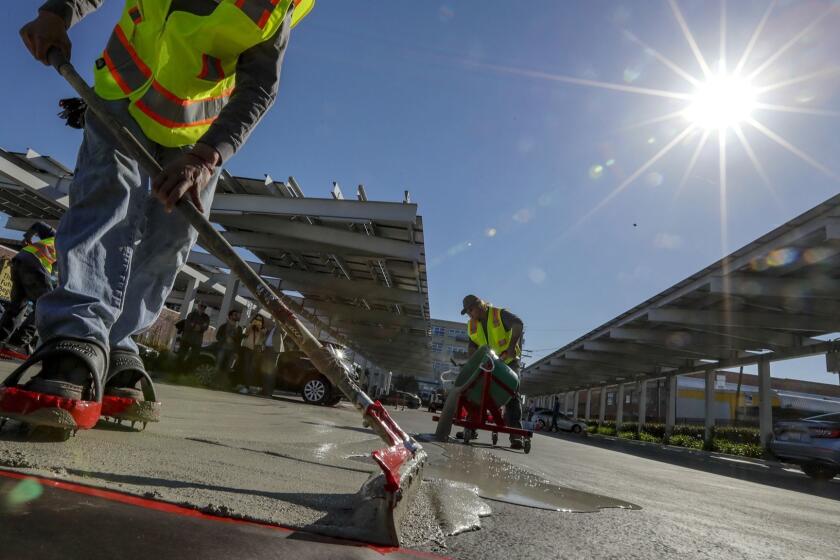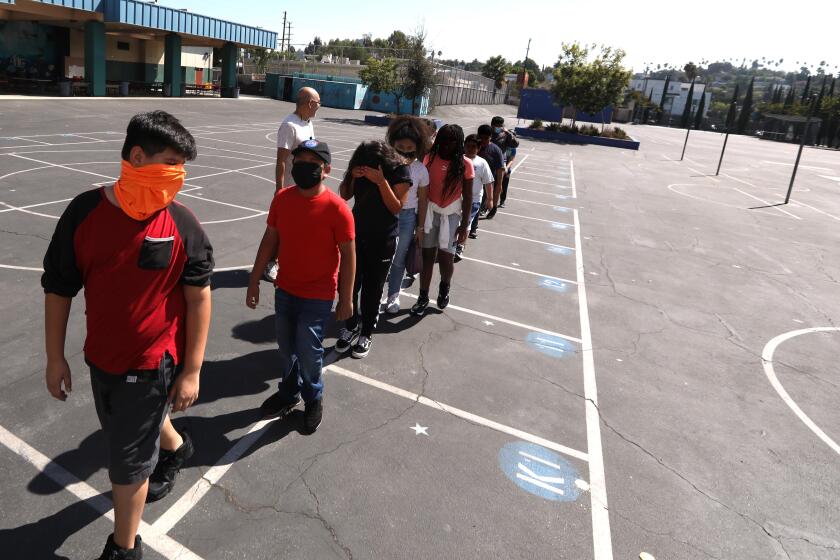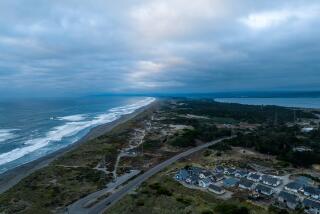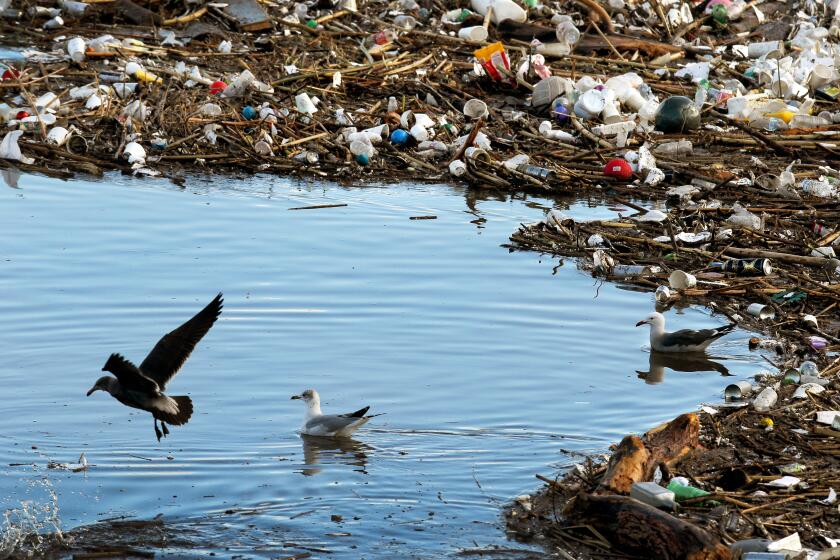South L.A. among communities awarded state grants for climate projects
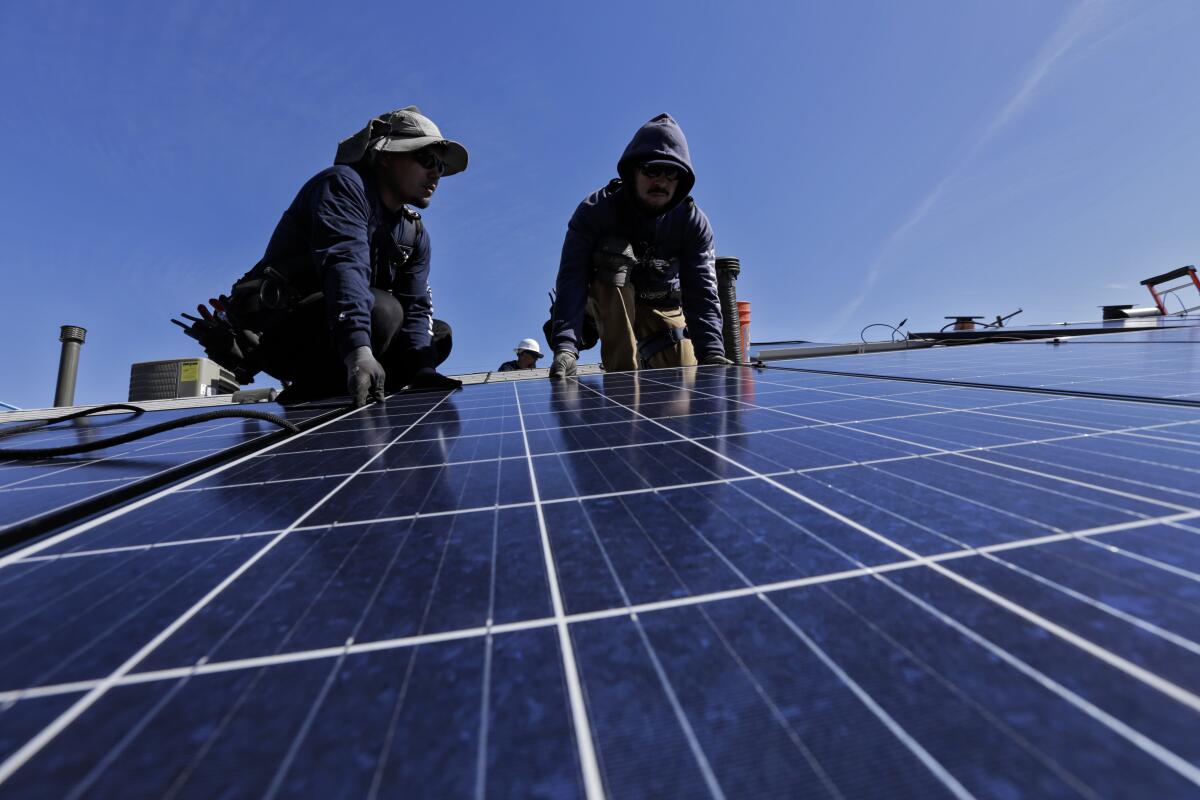
South Los Angeles is among 10 communities across California that will be awarded financial support to help combat the effects of climate change.
On Thursday, the state approved $96.2 million in grants to support community-led projects in tribal, disadvantaged and unincorporated neighborhoods that would help reduce greenhouse gas emissions, provide economic opportunities for residents, and improve the environment and public health.
“California is empowering communities on the frontlines of the climate crisis to tackle pollution and build resilience in their own neighborhoods,” Gov. Gavin Newsom said in a press release. “This innovative support for community-led projects across the state will bring environmental, health and economic benefits to Californians for decades to come.”
Collectively, the 10 projects will reduce greenhouse gas emissions by up to 64,000 metric tons, or the equivalent of removing 14,000 cars from roadways for one year.
The gray sludge poured out of giant plastic buckets like pancake batter.
Richmond Rising and the South Los Angeles Eco-Lab — a project proposed by more than 20 local organizations, including CicLAvia, the Metropolitan Transportation Authority and TreePeople — each received $35 million, the highest grants awarded. Grants were also given to communities in Stockton, San Diego and Monterey and the Wiyot and Karuk tribes, among others. The five-year grants will begin next year.
The South L.A. project will involve community engagement, urban greening, economic opportunities, transit access, energy efficiency and mobility projects that “reduce greenhouse gas emissions, increase community resilience and create pathways for various workforce development efforts,” said Zahirah Mann, president and chief executive of the South L.A. Transit Empowerment Zone, a collective focused on providing economic opportunities to residents.
The project area will encompass 3.9 square miles in the heart of South L.A., home to an estimated 85,000 mostly Black and Latino people, 60% of whom live below the poverty level. It is an area disproportionately affected by land and air pollution largely due to the surrounding freeways.
Among the proposed South L.A. projects that will be supported by the grant include free Metro passes for students, seniors and low-income residents; solar roof panel and electric vehicle charging installations; cooling efforts to mitigate the effects of longer and worsening heat waves, including planting 6,000 trees throughout the area and greening two acres of 52nd Elementary School; and know-your-rights workshops for residential and commercial tenants.
Maria Patiño Gutierrez, director of policy and research at Strategic Actions for a Just Economy, a tenants rights and housing justice organization, said displacement avoidance is an important part of the project.
There are 150 L.A. Unified schools in “very high need” of green space and shade, mostly in South and East Los Angeles, where parks are scarce.
“The reality is, there is a concern that all this greening within the community and development can potentially impact the community [through gentrification], so we want to make sure that the people who live here will be able to thrive here,” she said.
Mann hopes that the project, which is expected to be completed by the 2028 Summer Olympics, will inspire the millions of people estimated to descend upon the city to develop climate mitigation plans in their own communities.
“We’re really excited for South L.A., as it has many times in the past, to serve as a leader in this effort and also be able to present its work as a model for the rest of the nation, for the rest of the world,” Mann said.
“The South LA Eco-Lab’s synergistic projects are seeds cultivated by community residents, small businesses, community-based organizations, and public agencies in these neighborhoods,” the project’s website says. “The seeds will blossom into a South Los Angeles oasis.” The project expands on the work of the South L.A. Climate Commons.
Since 2016, the state has distributed some $661 million to the Transformative Climate Communities Program, which provides financial aid to projects focused on improving health, economic and environmental outcomes for California’s disadvantaged communities. The program is part of Newsom’s California Climate Commitment, a multiyear, $54-billion vision to fight climate change.
